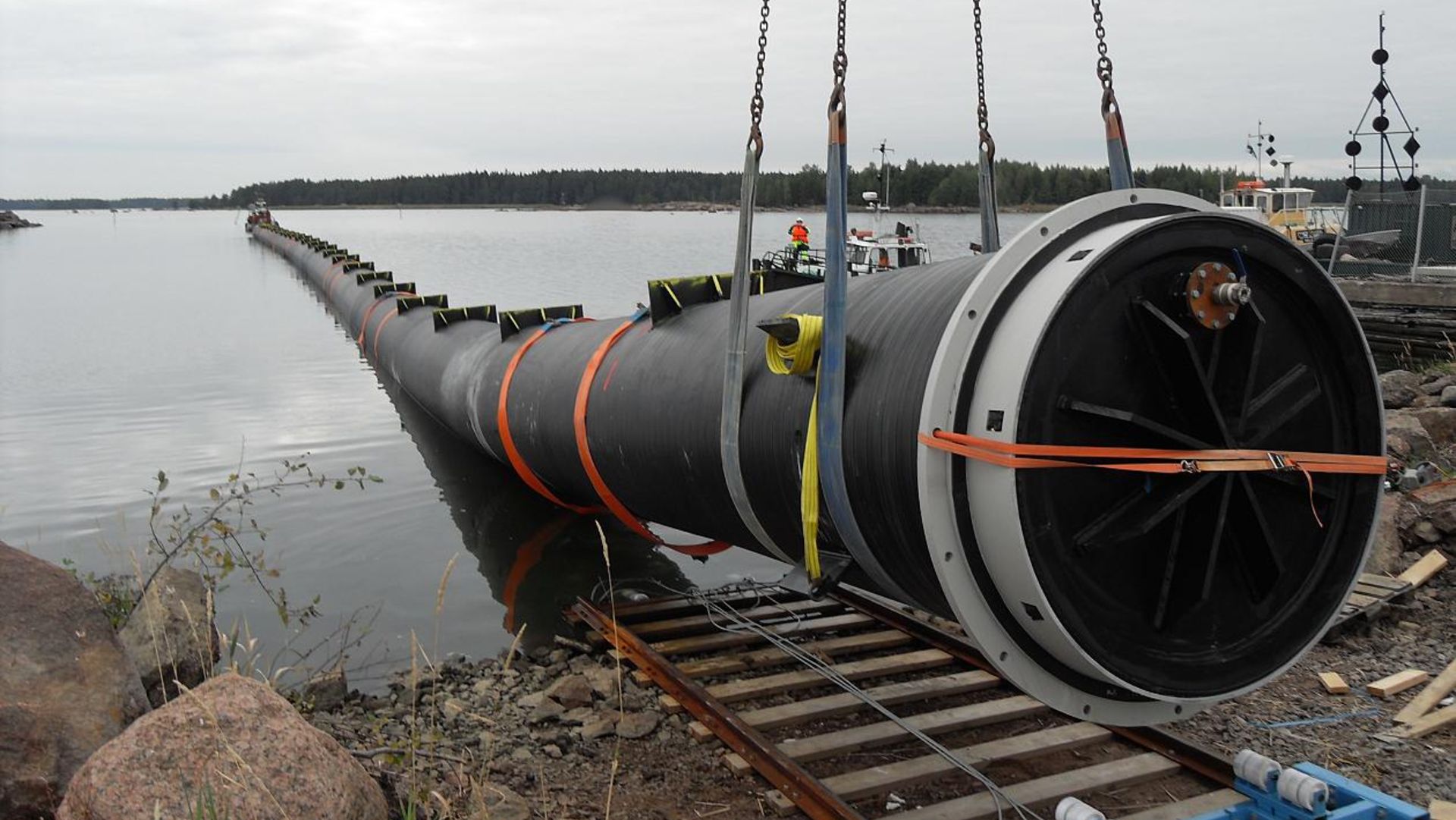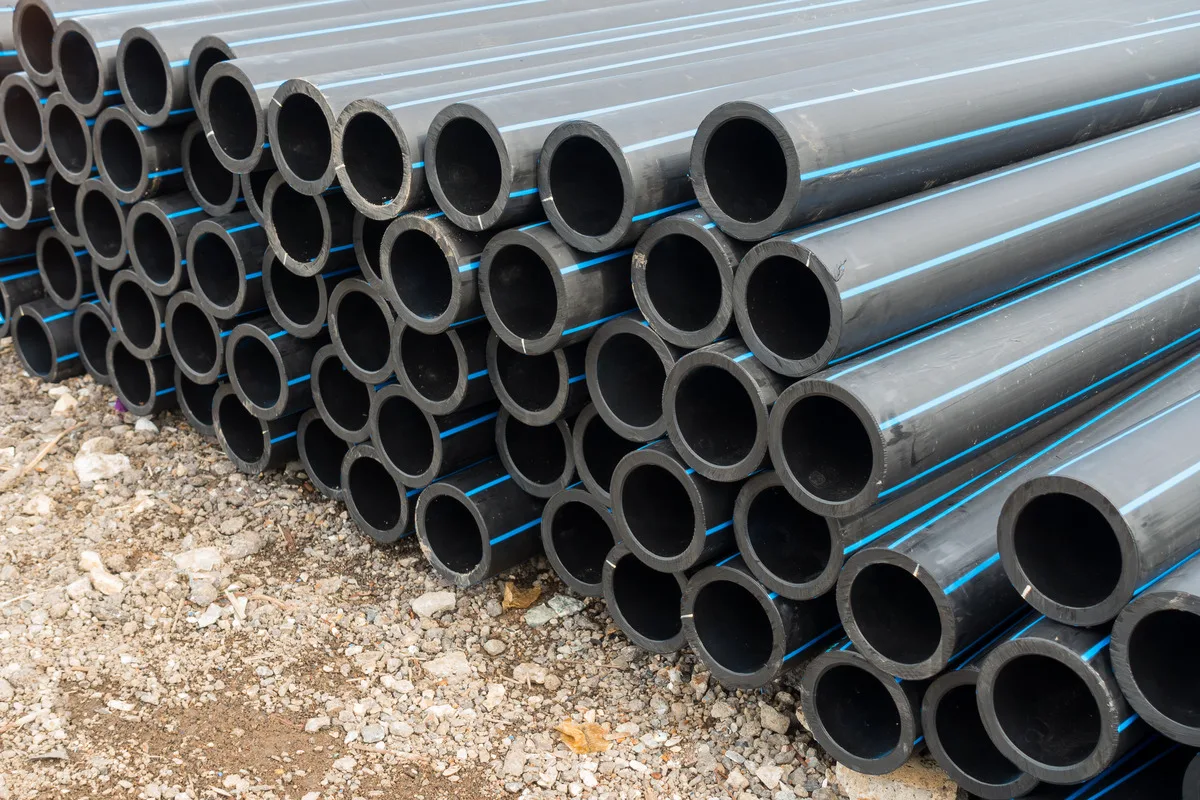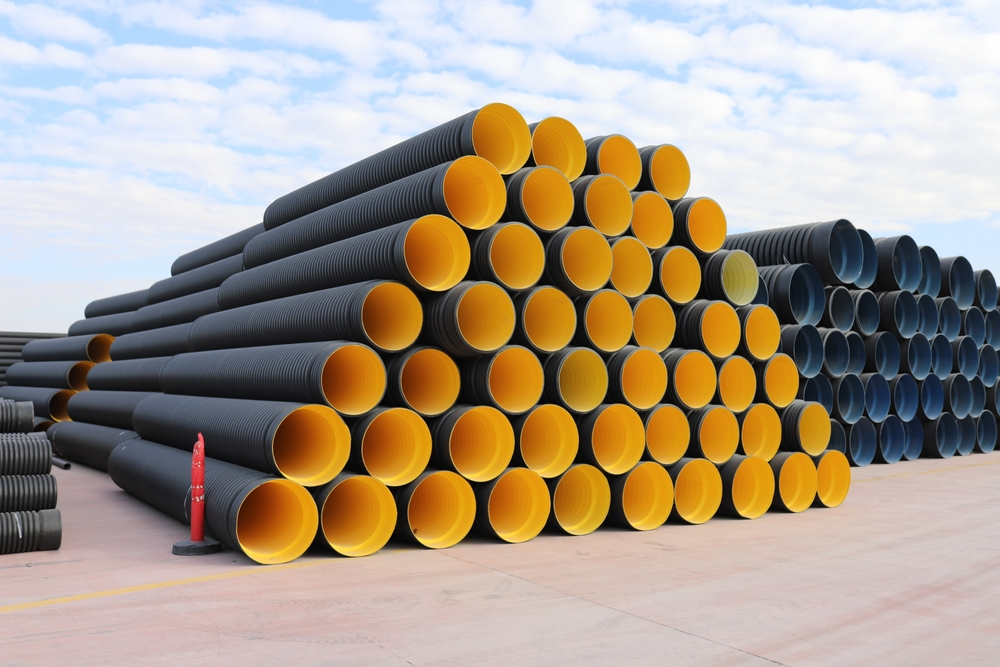HDPE Pipe Supplier explained: why they are essential
Discovering the Leading Pipeline Manufacturers: Top Quality, Integrity, and Technology
The pipeline manufacturing industry stands at the junction of development, top quality, and reliability, driven by leading firms such as Tenaris and Vallourec. These producers are not only dedicated to producing high-performance products however are also pioneering lasting practices that attend to modern-day environmental concerns (Pipeline Manufacturer). As we examine the criteria that specify excellence in pipeline options, it comes to be evident that the landscape is quickly evolving. What specific developments are emerging, and just how are these innovations forming the future of pipeline framework? The answers may redefine market criteria in manner ins which are not yet fully comprehended
Leading Manufacturers Overview
In the domain of pipeline manufacturing, several principals become leaders, each contributing significantly to the market's landscape. Business such as Tenaris, Vallourec, and JFE Steel have developed themselves as frontrunners by consistently delivering premium items that satisfy rigid sector standards. Tenaris, renowned for its cutting-edge options, specializes in smooth and welded pipes, catering mostly to the oil and gas field. Vallourec, a French international, concentrates on the manufacturing of costs tubular options, emphasizing sustainability and progressed technology in its manufacturing procedures.
JFE Steel, a significant Japanese manufacturer, is recognized for its considerable variety of steel pipes, particularly those made use of in power and infrastructure tasks. Their commitment to study and development has actually enabled them to generate high-performance materials that withstand rough ecological problems. Additionally, business like U.S. Steel and National Oilwell Varco have expanded their market presence by diversifying their item offerings and enhancing functional efficiencies.
These leading makers not just control the marketplace yet additionally drive technology within the sector, establishing criteria for top quality and reliability that various other players strive to achieve. Their contributions are vital for meeting the increasing demand for long lasting and effective pipeline options worldwide.
Standards for Top Quality Evaluation
Quality evaluation in pipeline manufacturing rests on two essential standards: material longevity requirements and manufacturing process efficiency. Making sure that products fulfill rigorous longevity standards is crucial for the long life and integrity of pipelines. Furthermore, maximizing the manufacturing procedure can boost productivity while maintaining excellent quality, eventually affecting overall performance and security.
Material Sturdiness Specifications
Assuring the durability and dependability of pipeline materials is important for preserving facilities integrity and functional effectiveness. Product toughness standards play a vital duty in reviewing the high quality of pipelines, determining the performance and life-span of the materials made use of in building. Manufacturers must stick to a series of rigorous standards, consisting of those established by organizations such as ASTM International and the American Petroleum Institute (API)
These requirements examine different factors, consisting of deterioration resistance, tensile stamina, and exhaustion efficiency. As an example, pipelines made use of in destructive environments require materials that can hold up against chemical degradation, while those subjected to high-pressure problems have to exhibit remarkable tensile strength.
Additionally, factors such as temperature level changes and environmental problems should be considered, as these can considerably influence material behavior gradually. Manufacturers frequently make use of advanced screening methods, including sped up aging examinations, to mimic lasting wear and guarantee that materials go beyond or meet market standards.
Manufacturing Process Efficiency
Manufacturers' capacity to enhance manufacturing process performance is vital for creating top quality pipes that fulfill strict market requirements. Performance in producing directly affects price administration, manufacturing timelines, and overall product stability. To attain this, leading pipeline makers execute advanced methods such as lean manufacturing, automation, and real-time information analytics.
Lean manufacturing concepts are important in decreasing waste and making best use of resource usage. By improving processes and getting rid of redundancies, producers can boost performance while ensuring consistent quality. Automation technologies, consisting of robotics and computer system numerical control (CNC) equipments, play a pivotal role in boosting precision and lowering human mistake, thereby raising the dependability of the end product.
In addition, the use of real-time information analytics permits producers to keep track of production procedures continuously, enabling them to determine traffic jams and make timely modifications. This positive approach not only boosts performance however also supports quality control procedures by ensuring conformity with regulative standards.
Dependability in Pipeline Solutions
Integrity in pipeline services is critical, as it directly affects the security and effectiveness of liquid transport systems. Secret elements consist of the sturdiness of materials used, adherence to strenuous screening and certification criteria, and the consolidation of innovative product services that enhance efficiency. Understanding these components is crucial for makers aiming to provide dependable pipeline framework.
Importance of Resilience
Attaining resilience in pipeline remedies is important, as it straight impacts the lasting performance and safety and security of facilities. Sturdy pipelines are necessary for decreasing maintenance costs and decreasing the chance of tragic failings. This reliability is particularly crucial in markets such as oil and gas, water supply, and wastewater management, where the effects of pipeline failure can be extreme, both economically and environmentally.
The products and manufacturing processes used by pipeline suppliers play a substantial duty in determining the longevity of the end product. Using high-quality basic materials, advanced modern technologies, and cutting-edge layout principles guarantees that pipes can withstand various stressors, including pressure changes, temperature variants, and destructive atmospheres.
Moreover, the sturdiness of pipelines is very closely connected to their ability to resist outside elements such as dirt activity, seismic activity, and chemical exposures. Efficient deterioration protection approaches, such as coatings and cathodic security, further boost the long life of pipes, safeguarding them against wear and tear over time.
Investing in durable pipeline services ultimately equates to raised functional effectiveness, reduced downtime, and boosted security, verifying the essential importance of longevity in contemporary pipeline manufacturing.
Evaluating and Qualification Specifications
In the domain of pipeline options, extensive screening and accreditation requirements are important to assure the integrity and security of infrastructure. These criteria work as standards for reviewing the efficiency and resilience of pipeline products and systems, verifying they meet certain regulatory and sector demands.
Testing processes generally incorporate various methodologies, including pressure screening, hydrostatic evaluations, and non-destructive screening strategies. These assessments are essential for determining possible weaknesses or flaws in the products before they are released in real-world applications. Additionally, qualification by recognized organizations assurances that suppliers stick to established guidelines, which promotes trust fund among stakeholders, including professionals, engineers, and end-users.
Numerous leading pipeline suppliers take part in constant tracking and enhancement of their testing procedures to adjust to progressing market criteria and technical innovations. Compliance with criteria such as ASTM, ASME, and ISO not just enhances item dependability yet likewise decreases the danger of ecological incidents associated with pipeline failings.
Ingenious Product Solutions
The advancement of ingenious material services has actually transformed the landscape of pipeline manufacturing, enhancing both efficiency and sturdiness. Advanced materials such as high-density polyethylene (HDPE), cross-linked polyethylene (PEX), and composite materials have actually arised as game-changers, supplying superior resistance to corrosion, temperature level variations, and pressure variations. These materials not just extend the lifespan of pipelines yet additionally lower upkeep read expenses, making sure reputable long-term performance.
Furthermore, manufacturers are significantly embracing wise products that incorporate sensors for real-time surveillance. This innovation allows for aggressive maintenance, considerably boosting dependability by identifying leaks or architectural weaknesses prior to they intensify into crucial failures. The assimilation of nanotechnology has actually also led to the development of finishes that improve the resilience of pipelines against abrasion and chemical exposure.
Sustainability is an additional essential emphasis, with producers checking out bio-based composites and recyclable materials that decrease environmental influence. As regulatory requirements remain to evolve, the emphasis on innovative material remedies comes to be critical in conference stringent security and ecological requirements. Inevitably, these improvements not only improve the integrity of pipeline systems but likewise add to the overall performance and sustainability of power transportation facilities.
Technologies in Pipeline Technology
Technologies in pipeline technology are changing the industry by enhancing effectiveness, safety and security, and ecological sustainability. Recent improvements concentrate on wise pipeline systems that utilize sensing units and IoT innovation to monitor problems in genuine time, enabling aggressive maintenance and lowering the danger of failings. These systems can detect leaks, stress changes, and various other anomalies, enabling rapid action and reducing environmental impact.
Additionally, the growth of innovative products, such as corrosion-resistant and composite alloys, considerably extends the lifespan and integrity of pipelines. Pipeline Manufacturer (Permian Basin HDPE Pipe Supplier). These materials reduce maintenance costs and enhance efficiency in harsh settings, making them excellent for water, oil, and gas transport
Automation and robotics are playing an important function in pipeline building and inspection. Drones and robot tools help with surveys and evaluations of hard-to-reach areas, guaranteeing extensive examinations without compromising security.
Furthermore, cutting-edge designs, such as modular pipeline systems, enable greater versatility in installation and modification, satisfying the vibrant needs of the energy industry. Together, these technological innovations not just boost functional effectiveness yet likewise add to a more durable and lasting pipeline facilities, leading the way for a greener future.
Case Researches of Success
Across various sectors, effective executions of sophisticated pipeline innovations demonstrate considerable enhancements in operational performance and safety and security. One notable instance is the implementation of wise pipeline tracking systems in the oil and gas market, where real-time data analytics have actually decreased leakage discovery times by over 50%. This not just decreases environmental threats but also enhances the total integrity of pipeline framework.

Furthermore, a major manufacturer implemented robotic examination modern technologies in its pipeline upkeep procedures, leading to a 40% improvement in examination efficiency. This method has structured maintenance schedules and significantly reduced downtime.
These study highlight exactly how leading pipeline suppliers are leveraging innovative technologies to foster dependability and functional quality, inevitably setting brand-new standards for the industry. As these successes remain to unravel, they lead the way for further innovations in pipeline manufacturing and monitoring.

Ecological Sustainability Practices
Regularly, pipeline makers are focusing on ecological sustainability practices to alleviate their eco-friendly footprint and improve the long life of their products. This commitment is shown in different initiatives targeted at reducing waste, saving energy, and making use of sustainable materials throughout the manufacturing procedure.

Several manufacturers are adopting sophisticated modern technologies that lessen exhausts and energy intake. For example, the assimilation of automated systems and energy-efficient machinery assists enhance production while decreasing reliance on fossil fuels. Additionally, business are progressively turning to environmentally friendly materials, such as recycled metals and bioplastics, which not only decrease the ecological influence but also promote a circular economic situation.
Pipeline producers are implementing strenuous lifecycle assessments to examine the ecological effects of their items from creation to disposal. This approach allows them to identify opportunities for enhancement and foster liable sourcing and waste administration practices.
Cooperation with ecological companies even more enhances these initiatives, as manufacturers look for to straighten their procedures with global sustainability objectives. Eventually, these environmental sustainability methods not only add to a healthier planet yet also setting suppliers as responsible leaders in the sector, interesting environmentally conscious stakeholders and clients alike.
Future Trends in Pipeline Manufacturing
As the demand for a lot more efficient and sustainable infrastructure expands, pipeline manufacturing is positioned for considerable innovations that will certainly improve the market. Secret fads anticipated in the coming years include the integration of advanced products, such as corrosion-resistant and composite alloys, which boost resilience while decreasing environmental effect. Manufacturers are also anticipated to take on cutting-edge production techniques, like additive manufacturing and automation, to simplify procedures, decrease waste, and reduced prices.
The rise of clever pipeline innovations, incorporating sensing units and IoT gadgets, will enable real-time monitoring and anticipating maintenance, therefore improving security and functional efficiency. This electronic transformation will not only enhance resource management however additionally facilitate compliance with strict ecological policies.
Sustainability will stay a main emphasis, driving producers to purchase environment-friendly methods, including energy-efficient manufacturing methods and recycling efforts. As the global focus on environment modification increases, pipeline makers will need to adapt by developing remedies that fulfill both economic and environmental demands.
Often Asked Questions

What Industries Primarily Make Use Of Pipeline Products From These Manufacturers?
Pipeline items are primarily utilized in industries such as oil and gas, water and wastewater administration, chemical mining, handling, and building and construction. These sectors rely upon reliable, sturdy, and secure transportation of liquids and products.
Just How Do Manufacturers Ensure Compliance With International Pipeline Criteria?
Manufacturers guarantee compliance with global pipeline standards by applying rigorous quality assurance procedures, carrying out normal evaluations, adhering to recognized governing structures, and investing in staff member training to promote recognition and understanding of safety and top quality demands.
What Is the Average Lifespan of Pipelines From Leading Manufacturers?
The typical life expectancy of pipelines from leading producers typically ranges from 30 to 100 years, relying on material, ecological problems, and upkeep techniques. American Plastics LLC HDPE Pipeline Manufacturer. Routine evaluations and adherence to sector requirements markedly influence durability and efficiency
Exist Certifications Details to Pipeline Production High Quality?
Yes, numerous accreditations exist for pipeline producing top quality, including ISO 9001 for top quality monitoring systems and API requirements details to pipelines. These certifications assure adherence to extensive safety and security, performance, and ecological standards within the market.
Exactly How Do Manufacturers Take Care Of Pipeline Maintenance and Repair Works?
Manufacturers typically implement a positive upkeep method that consists of routine evaluations, keeping an eye on systems for very early detection of problems, and a structured repair work procedure. This method assurances pipeline stability, lessens downtime, and improves general functional efficiency.
Quality assessment in pipeline manufacturing hinges on 2 crucial criteria: material resilience requirements and producing procedure efficiency - HDPE Pipe Supplier. Product longevity requirements play an important role in reviewing the top quality of pipelines, dictating the efficiency and life expectancy of the materials made use of in building and construction. The materials and making processes used by pipeline producers play a significant role in identifying the longevity of the last item. The typical life expectancy of pipes from leading producers normally varies from 30 to 100 years, depending on product, environmental problems, and maintenance methods. Yes, numerous certifications exist for pipeline manufacturing top quality, consisting of ISO 9001 for high quality administration systems and API standards certain to pipes